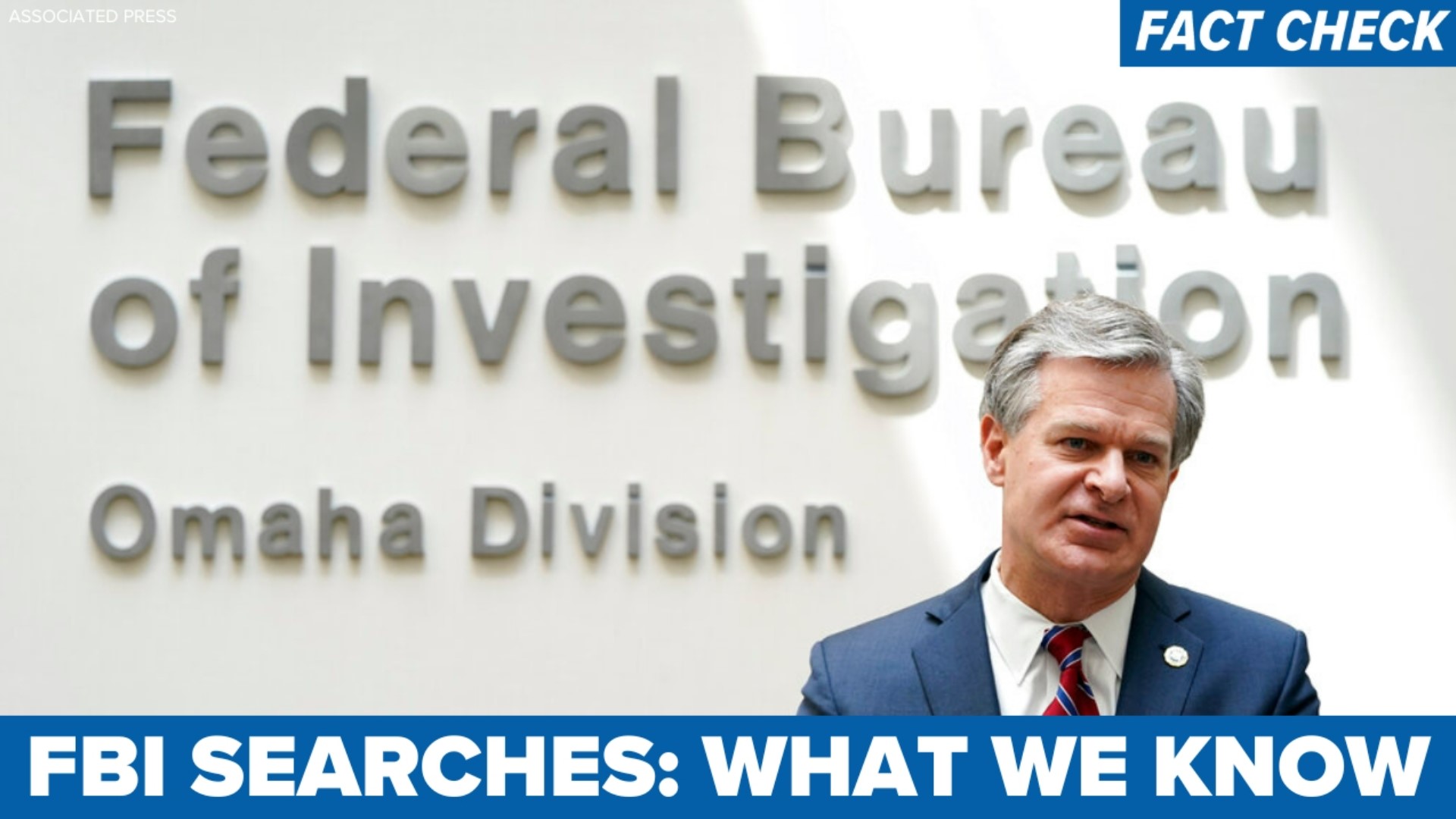CHARLOTTE, N.C. — As the FBI and U.S. Department of Justice staff review documents obtained through the search of former president Donald Trump's Florida estate, claims and rumors have already started to spread online.
WCNC Charlotte's Verify team is fact-checking what's known about searches and seizures under the law.
OUR SOURCES
WHAT WE FOUND
First, a brief account of the idea of "search and seizure."
The Fourth Amendment in the U.S. Constitution affirms every American has the right to secure their "persons, houses, papers, and effects against unreasonable searches and seizures."
If a search and seizure is conducted, there has to be probable cause, according to the amendment.
"If there's probable cause, meaning there is probably [a] chance that you are going to find what you need to find, or that person has done what you think they've done, then you can get a warrant," Williams said.
A judge signs off on a warrant, according to the DOJ's manual on the law of search and seizure. Law enforcement must obtain a warrant before going into someone's home for a search.
"A judge is the person who has the final say whether the search warrant will be executed," Williams said.
Williams pointed out a search warrant is incredibly detailed, spelling out what and where law enforcement can search. The subject of the search, in this particular case, Donald Trump, received a copy of the warrant upon entry of law enforcement onto the property. If Trump himself is not on the premises during the search, law enforcement leaves a copy of the warrant with his representative.
"At some point, unless it's under seal, it'll be public record," Williams said. "But Donald Trump could certainly show everybody what this was about."
Search warrants are signed every day, Williams said, but given the rarity of a former president's home being the subject of a search, Williams said this warrant likely went through several channels.
"This has gotten several levels of approval through the Department of Justice, so all the way up to the Attorney General," Williams said. "This isn't something that was haphazardly thrown together by a few street agents. This was a big deal."
VERIFY is dedicated to helping the public distinguish between true and false information. The VERIFY team, with help from questions submitted by the audience, tracks the spread of stories or claims that need clarification or correction. Have something you want VERIFIED? Text us at 704-329-3600 or visit /verify.

